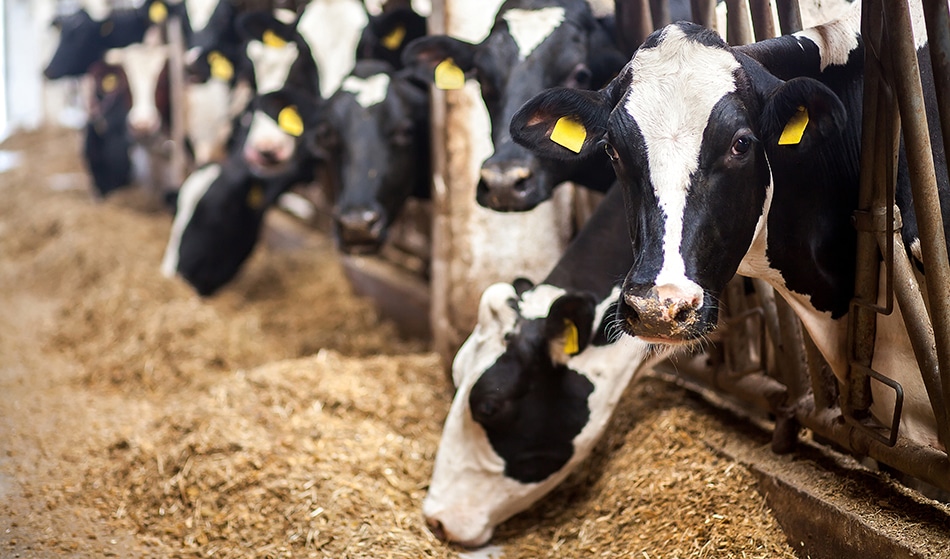OECD Validation of Microbiological Methods for Feed Testing
The OECD (Organisation for Economic Co-operation and Development) validation process is a globally recognized method to ensure that microbiological testing methods used in the agricultural and animal feed sector are accurate, reliable, and reproducible. This service focuses specifically on validating methods designed to detect microorganisms such as bacteria, fungi, or yeasts in feeds.
In the context of agricultural and animal feed production, ensuring microbial quality is crucial for several reasons:
- Prevention of contamination that could lead to foodborne illnesses
- Avoidance of spoilage which can result in economic losses
- Ensuring compliance with international standards and regulations set by bodies like the Food and Agriculture Organization (FAO) and World Health Organization (WHO)
The OECD validation process involves a series of stringent steps that must be followed to ensure the method is robust. It includes:
- Selection of appropriate test organisms
- Establishing suitable incubation conditions and detection limits
- Conducting challenge tests with known quantities of microorganisms
- Evaluating the method's precision, accuracy, linearity, and robustness over a range of concentrations
The significance of this validation cannot be overstated. Accurate microbiological testing ensures that feeds are safe for both animals and humans who consume animal products derived from these feeds. For instance, contaminated feeds can lead to the spread of zoonotic diseases such as Salmonella or E. coli.
Our laboratory employs state-of-the-art facilities and adheres strictly to OECD guidelines. We use advanced technologies like qPCR (quantitative polymerase chain reaction) for rapid detection of microorganisms, ensuring results are both timely and reliable. Additionally, our team consists of experts who have extensive experience in agricultural microbiology.
One key aspect of this service is the preparation of test samples. Samples from various sources such as raw materials (grains, proteins), finished products (complete feeds), or feed additives need to be prepared carefully. This involves:
- Sampling in strict accordance with GMP (Good Manufacturing Practice) guidelines
- Transporting samples under controlled conditions to prevent contamination
- Storing samples appropriately until analysis
The results of these tests are critical for several stakeholders including:
- R&D engineers who need data to improve feed formulations
- Quality managers responsible for ensuring product safety and compliance
- Compliance officers tasked with adhering to regulatory requirements
Eurolab Advantages
At Eurolab, we pride ourselves on offering unparalleled expertise in agricultural and animal feed microbiology testing. Our advantages are manifold:
- Comprehensive Expertise: Our team comprises specialists with deep knowledge of both OECD guidelines and the unique challenges faced by the agricultural sector.
- State-of-the-Art Facilities: Equipped with cutting-edge technology, our laboratory ensures accurate and reliable results.
- Rapid Turnaround Times: We understand the importance of timely results for our clients. Our efficient processes ensure that you receive your reports within days rather than weeks.
- ISO/IEC 17025 Accreditation: Our laboratory is accredited to ISO/IEC 17025, ensuring that all tests meet the highest quality standards.
- Client-Centric Approach: We work closely with clients to understand their specific needs and deliver tailored solutions.
Quality and Reliability Assurance
The reliability of the methods we validate is paramount. Our quality assurance measures are designed to ensure that:
- All tests comply with OECD guidelines and relevant international standards such as ISO/IEC 17025.
- Results are reproducible across different laboratories using identical methods.
- The precision of the method is within acceptable limits, typically ±10%.
In addition to these measures, we also conduct regular internal audits and participate in proficiency testing programs organized by recognized bodies. This ensures that our methodologies are continuously refined and improved.
Environmental and Sustainability Contributions
The agricultural sector plays a crucial role in global food security but also faces significant challenges related to environmental sustainability. By ensuring the safety of feeds through rigorous microbiological testing, we contribute positively:
- To reducing the risk of contamination and subsequent recalls which can lead to waste and resource inefficiencies.
- In promoting sustainable practices by enabling manufacturers to produce safe and high-quality products without compromising on environmental standards.





